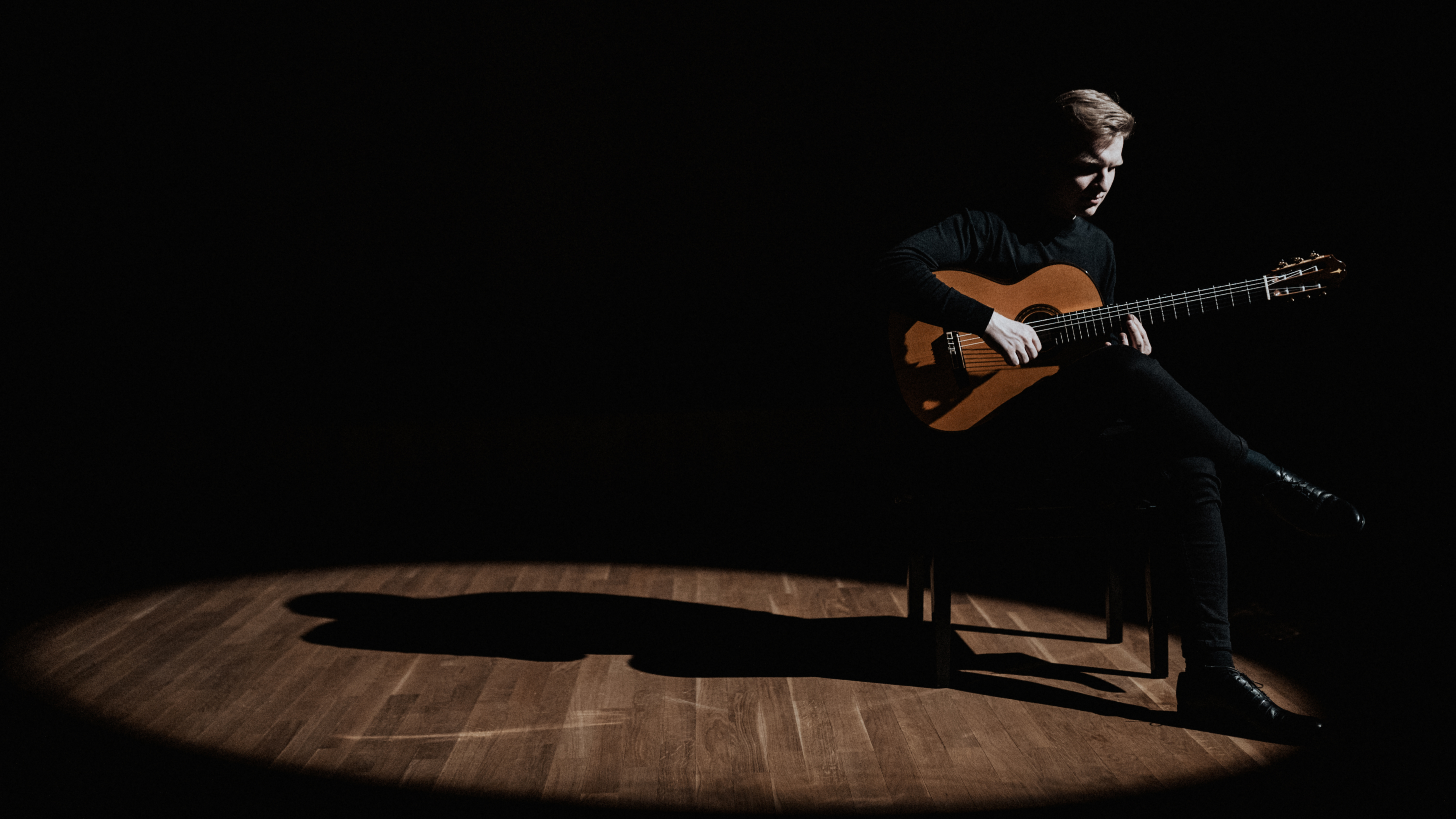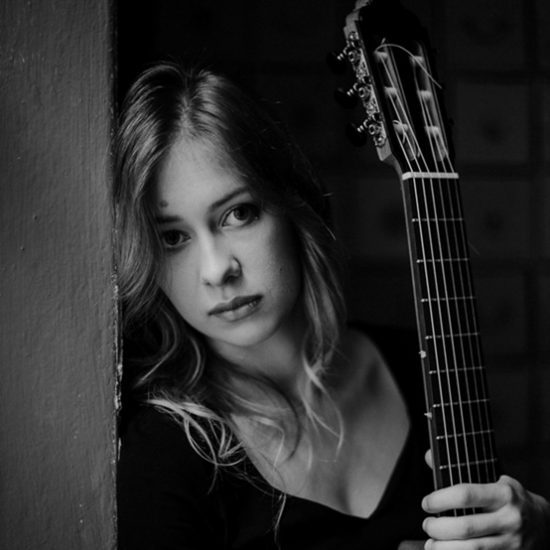Altamira Guitars has been showcasing their higher end instruments through some wonderfully produced concerts on their Altamira Home Concert Series. The instruments speak for themselves but it certainly helps when you have artists of this caliber playing them! Some of the recent highlights have been the performances of Kasia Smolarek, Ricardo Gallén, Kanahi Yamashita, Pavel Steidl, Anabel Montesinos, Kevin Loh, among many others. Here are a few for you to enjoy in one place:
Category: Artist Spotlight
Artist Profile and Interview: Steve Cowan
The Canadian virtuoso and award-winning guitarist, Steve Cowan has graced stages throughout Canada, the United States, and Europe. Steve’s beautiful playing is highlighted by a dark sound, rich nuance, and wondrous clarity, placing him among the elite guitarists of his generation. His debut album of Canadian music, Pour guitare (McGill Records, 2016), helped to establish him as ‘one of Canada’s top contemporary classical guitarists’ (Classical Guitar Magazine). In 2018–2019, Steve made his concerto debut with Ensemble del Arte in Germany, his New York solo recital debut, and released his second solo recording Arctic Sonata (EMEC discos).
Active both as a soloist and chamber musician Steve performs regularly with Forestare, a Montréal-based string ensemble; in 2022, he will be a Chamber Music New Zealand touring artist with flutist Hannah Darroch, as well as a Prairie Debut touring artist with guitarist Adam Cicchillitti. The Cowan–Cicchillitti duo has premièred 15 new works and released an album of Canadian music titled FOCUS (Analekta, 2019); their next recording, Impressions intimes (Analekta, 2021), features original arrangements of Debussy, Ravel, Mompou and Tailleferre.
Fortunately, Steve recently sat down to share some detail about his journey with guitar. I hope it inspires everyone!
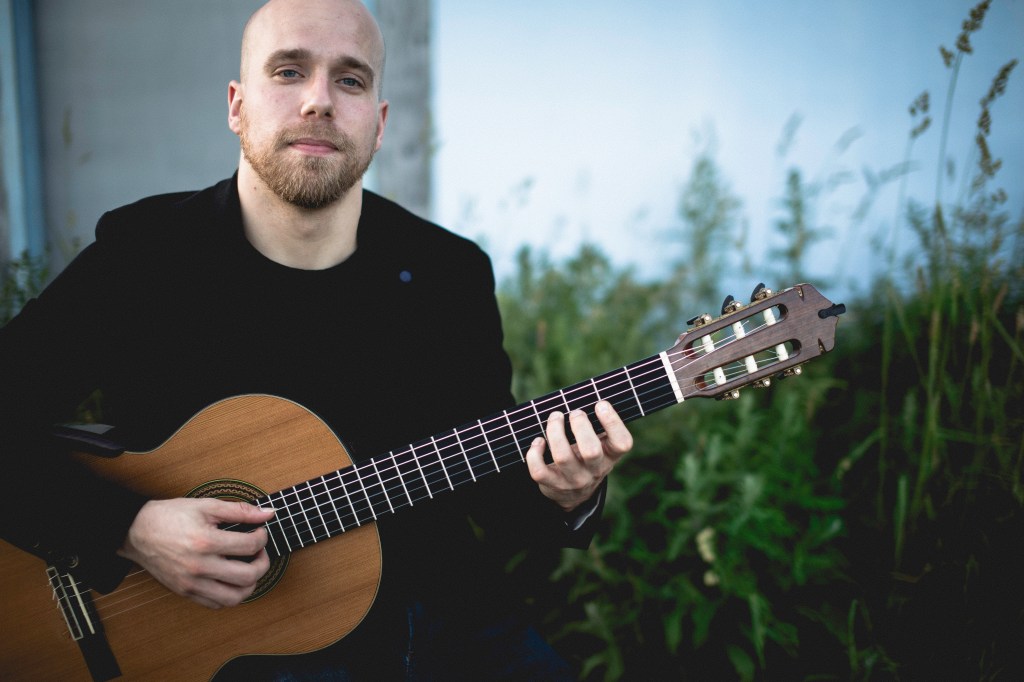
Personal
When did you start playing and why? Or, what drew you to the guitar initially?
My music education growing up consisted of piano lessons when I was very young, and drum set lessons in my teenage years. While I was (and still am) obsessed with rhythm, which is what drew me to drums initially, I envied the beautiful chords and melodies I would hear in guitar playing. I began to self-teach myself electric guitar at around 15, and I took it very seriously, playing in progressive and experimental rock bands in my hometown for the next 7 years. At 18, I wanted to study music at my local University (Memorial University of Newfoundland), and figured whatever was described as “classical guitar” on the website was my best shot to get admitted. I had never been exposed to much classical music or to this style of guitar playing before, so I went to a performance class at the University and heard some great renditions of pieces by Brouwer and Villa-Lobos. I was incredibly inspired and went out the next day and bought a classical guitar, found a local teacher to instruct me and prepare me for the audition, and I haven’t really stopped playing since.
What repertoire do you enjoy playing the most?
For the past five years I have definitely been mostly a “new music” player, as many of my album projects, academic pursuits, and concert programs have been largely focused on new commissions and premieres. This is something that will always excite me, and I’m lucky to have worked with composers that understand my musical sensibilities and write pieces that feel perfect for my tastes and my hands. I do still appreciate the standard repertoire and music from different periods, and often include portions of renaissance, baroque, or 20th century repertoire in my programs as well. Lately, many solo and ensemble projects have been centered on early-mid 20th century French music (Debussy, Ravel, Mompou and others), both arrangements and original guitar works, and this is another broad stylistic period that really resonates with me.
In recent years, I am often seeking out music that is slow in tempo, and intimate in character. I spend a large portion of practice time searching for that perfect legato, dynamic nuance, or temporal manipulation in order to create the long, beautiful phrases that I hear come so naturally to instruments such as the piano or bowed strings. It is difficult to achieve on the guitar, but so satisfying when it works. In my opinion, this can be equally as “virtuosic” as playing extremely fast, and I really enjoy searching for these magical moments in different repertoire.
What guitar or guitars do you perform on? Strings?
I play on two guitars by Québec luthier Bruno Boutin: a traditional spruce top and a cedar double top. I’ve played on his instruments for nearly a decade, and have never found another instrument that seemed to fit my playing as well as these instruments do. Balanced, rich, projection and clarity. I always went for carbon strings from various companies, as I found traditional nylon strings did not work as well with my plastic nails. However, I recently fell in love with Augustine Regal Blues (nylons!), and they seem to have everything I need.
Which guitarists/musicians have had the most influence on you?
There’s a very long answer to this question, but in short I believe that my time as a drummer and progressive rock musician largely shaped how I hear and feel music, and could explain why I’m so drawn to contemporary guitar repertoire in particular. To give a few names, my father was constantly spinning King Crimson or Pink Floyd albums during my entire childhood, and I don’t know if I would play guitar the way I do if I had been exposed to classical music from a very young age instead.
With regards to my classical guitar playing specifically though, my biggest influences would certainly be my three principal teachers. My first teacher in my hometown of St. John’s, Newfoundland was Sylvie Proulx, and she pushed me very hard. She was rigorous with refining my technique, and introduced me to all of the great repertoire and players that I had never been exposed to. She also encouraged me to pursue graduate school in the United States, and I went on to study with David Leisner at the Manhattan School of Music. David taught me an incredible amount about musical depth and nuance of interpretation, as well as how to connect with my instrument in a more relaxed, healthy, and musical way. His well-known ergonomic techniques are an integral part of my playing and teaching. His well-known ergonomic techniques are an integral part of my playing and teaching. Jérôme Ducharme was my instructor at the doctoral level, and further deepened my relationship with the instrument itself. He knows the fretboard inside out, has an endless amount of tricks up his sleeve for both hands, and always applied them with a deep musical intelligence. As a former GFA winner himself, he doesn’t let anything slide and really took me to the next level.
To make this long answer even longer, there are also some very young players that have influenced me profoundly. I feel there is somewhat of a revolution happening in guitar technique right now, particularly with regards to the left hand, and watching players like Xavier Jara do incredible stretching and finger gymnastics in order to achieve that perfect legato has been a great source of inspiration. I also can’t get enough of Lorenzo Micheli and Matteo Mela, as soloists or as SoloDuo.
If you have recordings, which recording/s are you most proud of? If not, are you planning to record a cd?
I have 2 solo albums, a duo album, and another duo album to be released in March of this year. My first solo album (Pour guitare, 2016) and first duo album (FOCUS, 2019, withAdam Cicchillitti) feel particularly special, as they both consist of new Canadian music, most of which was written for either me or the duo. My second solo album, Arctic Sonata (2019), features the title track by young Icelandic composer Gulli Björnsson, as well as a lot of overlooked 20th century gems. Arctic Sonata is an incredible piece, and has been a staple of my concert programs since 2016. It’s a total crowd pleaser and I’m happy with the performance we captured on the album.
Are there any recordings that you consider have the finest recorded sound for guitar?
I’m lucky to have a close working relationship with the fantastic guitarist and producer Drew Henderson, and have always been immensely satisfied with the results he produced in both my videos and the duo albums. It’s no surprise to me that he is in such demand in the guitar world these days. I am pretty open with regards to these things though, and am by no means a purist; it doesn’t need to be a big reverberant church sound, though that certainly works for some repertoire. Florian Larousse’ latest Bach album sounds more like a studio recording to me (I could be wrong), and the clarity is striking. Patrick Kearney’s latest album was also done in a studio, and with his playing and the repertoire on the album, the sound really “pops” and it works better for him than if it were done in say the Naxos style, I think.
What are some up and coming projects (recordings, concerts) you are excited about?
My next duo album with Adam Cicchillitti, Impressions intimes (Analekta, 2021), features original arrangements of Ravel, Debussy, Mompou and Tailleferre and will be released on March 26th. I will also be premiering several new works in solo and duo at this years 21st Century Guitar Conference (www.21cguitar.com – March 22-26), which was scheduled to take place in Portugal, but due to COVID-19 will occur entirely online.
I’m very excited about a project that began last summer, when I recorded 12 separate guitar parts in an ambitious new piece by Canadian composer Jason Noble. The piece, fantaisie harmonique, is for double-guitar orchestra (6 classical guitar parts, 6 electric parts), and utilizes 6 different scordatura tunings to cover an extended microtonal range across the different guitars. It is an exploration of timbre on the guitar, relying mostly on harmonics, open strings, and percussive mutes as opposed to traditional playing techniques. This recording was engineered by Denis Martin at McGill University in Montréal, and uses new Dolby Atmos software to create a 3-dimensional listening experience. A new 360-degree video and is currently in progress and will also be premiered as part of the 21st Century Guitar Conference. There are some current versions available to listen to on the Soundboard Scholar website: https://www.guitarfoundation.org/general/custom.asp?page=SbS06-Noble-Cowan
Listening to the binaural mix of this with headphones on is a wild ride!
I also have some pre-recorded and livestreamed performances coming up for the Cambrian College concert series (solo – February 5th), Triangle Guitar Society (solo – February 20), Montreal Guitar Society (solo – March 21), Guitar Alla Grande (solo – March 27), and Prairie Debut (duo – March 28). While I miss playing for live audiences, I’m grateful to have these opportunities during this difficult period.
If international travel can happen this summer (fingers crossed), I am currently scheduled to tour as part of the EuroStrings platform, which would take me to Finland, Estonia, Italy, Spain, and Romania… I guess we’ll see!
Technique and Performance
How much do you practice? And, do you structure your practice in any particular way?
I was never someone who practiced a crazy amount of hours, and probably peaked during my master’s degree at about 4-5 hours a day. These days, there are so many other things to manage other than practicing, so it’s really all over the place. I practice when I can, and some days I won’t play at all, while other days I will have to overcompensate and put in more hours than I would normally feel comfortable doing. Ideally, it involves a slow morning warmup, followed by focused and analytical work on new repertoire or difficult passages, and then time away from the guitar to do some other things. Later in the day or evening I’ll have another session that involves more “playing” and full run-throughs of pieces as opposed to sectional and analytical practice. I do a lot of recording myself, listening back, and score study, so “mental practice” is a also a large part of my regular routine.
Are there aspects of guitar that you struggle with or that you find you are still working on?
Everything needs regular maintenance, even the things I consider myself good at. So it’s not like we can stop practicing technique after a certain point, unfortunately. I struggle with fast scales, and certain left hand slurs in particular. I practice scales regularly as they are great for synchronization of the two hands, but guitarist’s obsession with extremely rapid scale playing has always puzzled me. Perhaps it’s because I don’t play a lot of Spanish repertoire, but it never really seemed to be that important for the pieces I was learning. That said, it does still come up, and I feel like a slouch in my duo when Adam is blazing through his scale passages while I’m clunking and sweating and failing. I’ll get there one day!
Do you deliberately memorize music or have a technique that helps assimilate music into memory?
Analyzing the music with regards to form and harmony greatly speeds up the memorization process for me. It’s not always easy, depending on the style of the music, but really studying the score without a guitar in your hands just helps you understand things on a deeper level. My practice approaches of working on very small sections (more on that later) also helps things stick a little easier, I think.
Have you published any editions or do you plan to publish your own editions in the future?
A guitar duo arrangement of Ravel’s Sonatine that I worked on with Adam Cicchillitti will soon be published by Productions d’Oz. Hopefully, our other arrangements from the album (Debussy, Mompou, Tailleferre) will be published as well. This piano music works great for guitar duo!
Do you have a favorite drill you use to warm up?
I have a ton of warm up drills that I vary on a regular basis, but if I’m short on time I would prioritize Brouwer’s Etude No. 6 to get my right hand going, and some of Scott Tennant’s left hand finger independence exercises from Pumping Nylon in order to get my left hand going.
Do you have any pre-concert rituals?
I eat 2-3 bananas in the 90 minutes before the concert, I slowly warmup, and I try to trick my brain into thinking that I’m “excited” and not “nervous” (sometimes it works, sometimes it doesn’t). I also like to listen to music in the 10-15 minutes before going on stage. If I’m feeling particularly anxious, I have recordings that I know will calm me down and get me in the zone. If I’m feeling fatigued or low energy, I’ll do the opposite – listen to something that will pump me up!
Do you do anything to your nails or shape them in a particular way?
My nails are I guess what you would describe as a slightly curved ramp upwards. They are relatively short, though I like the A finger to have a slightly longer length.
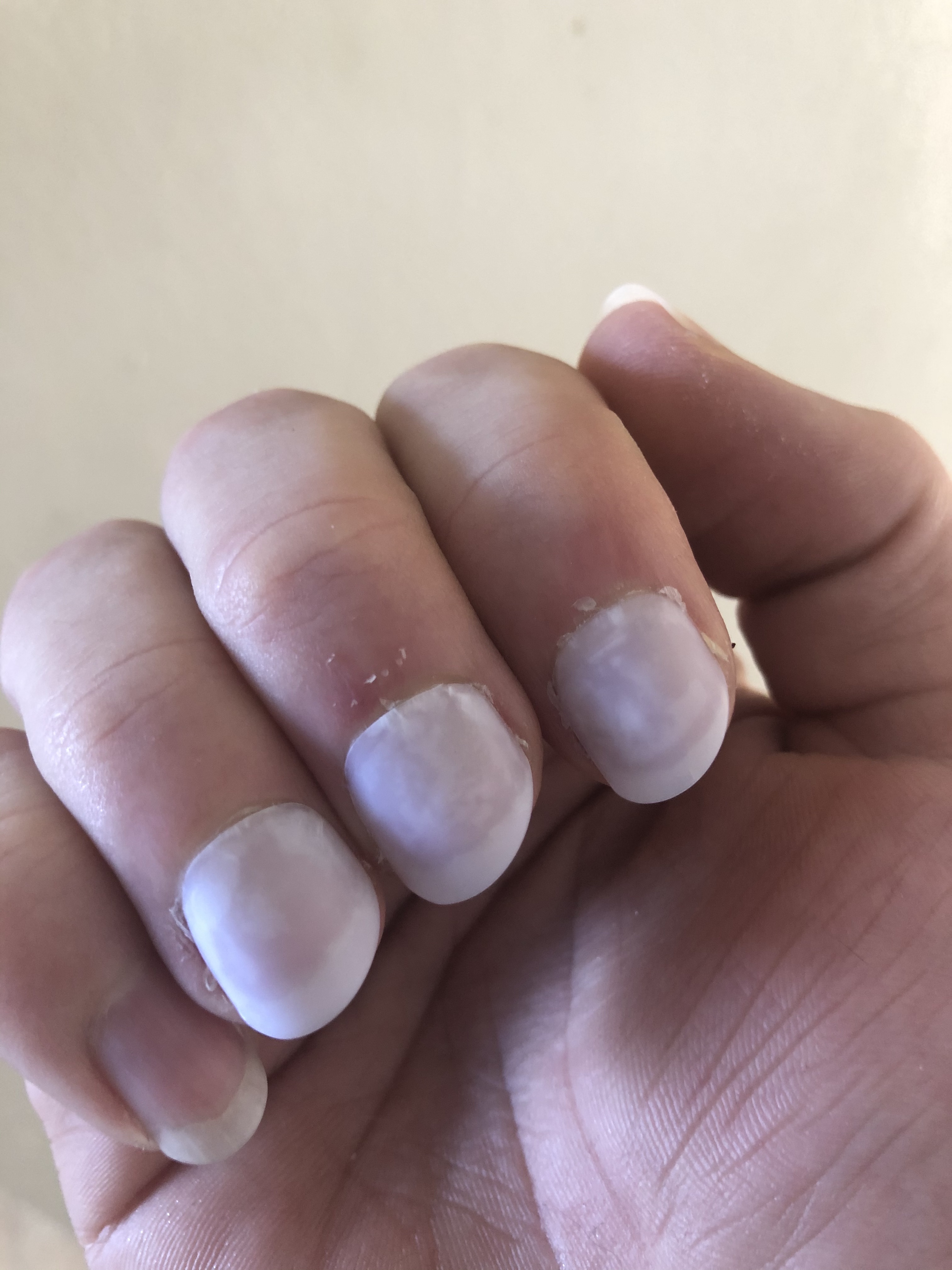
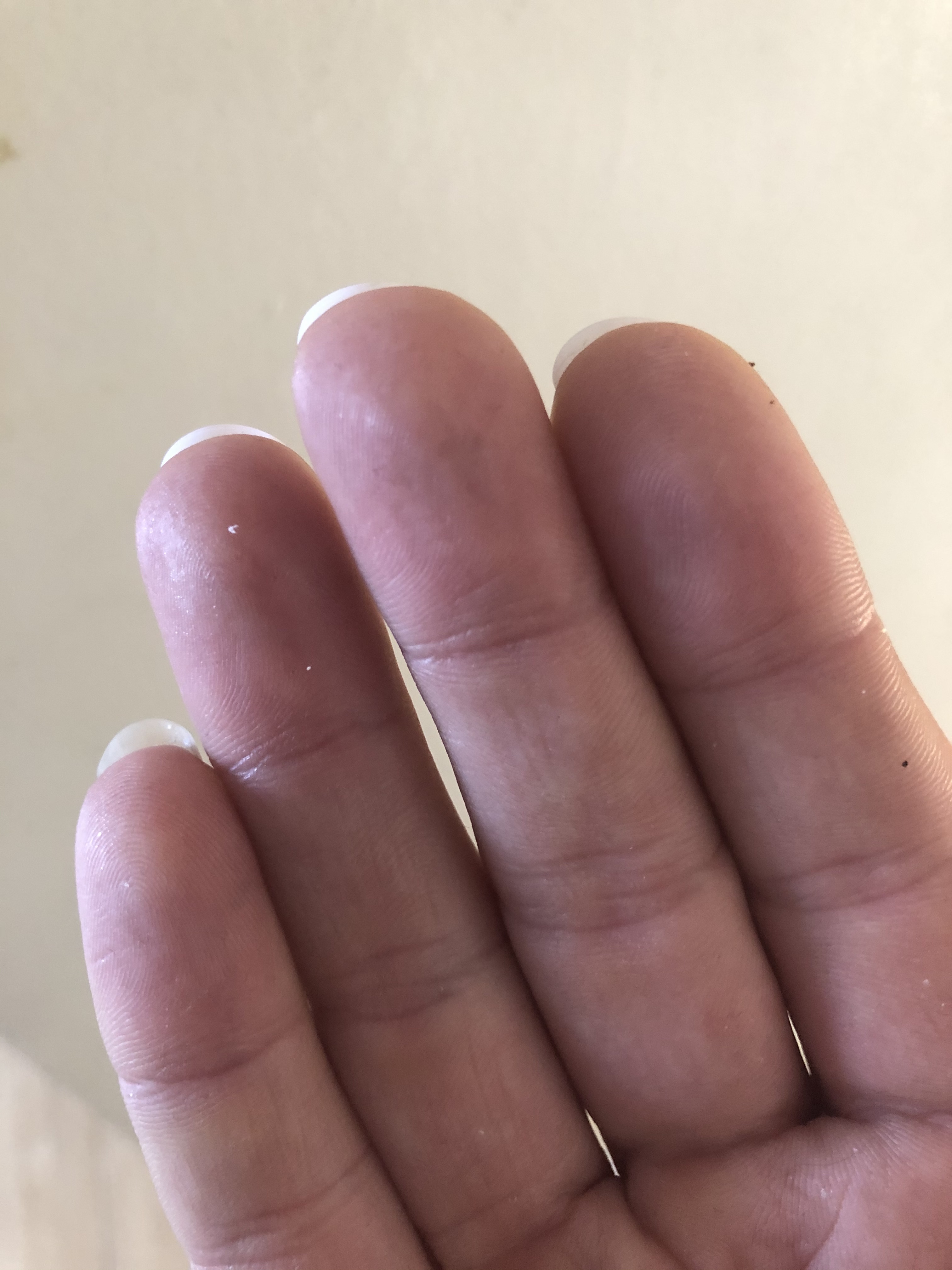
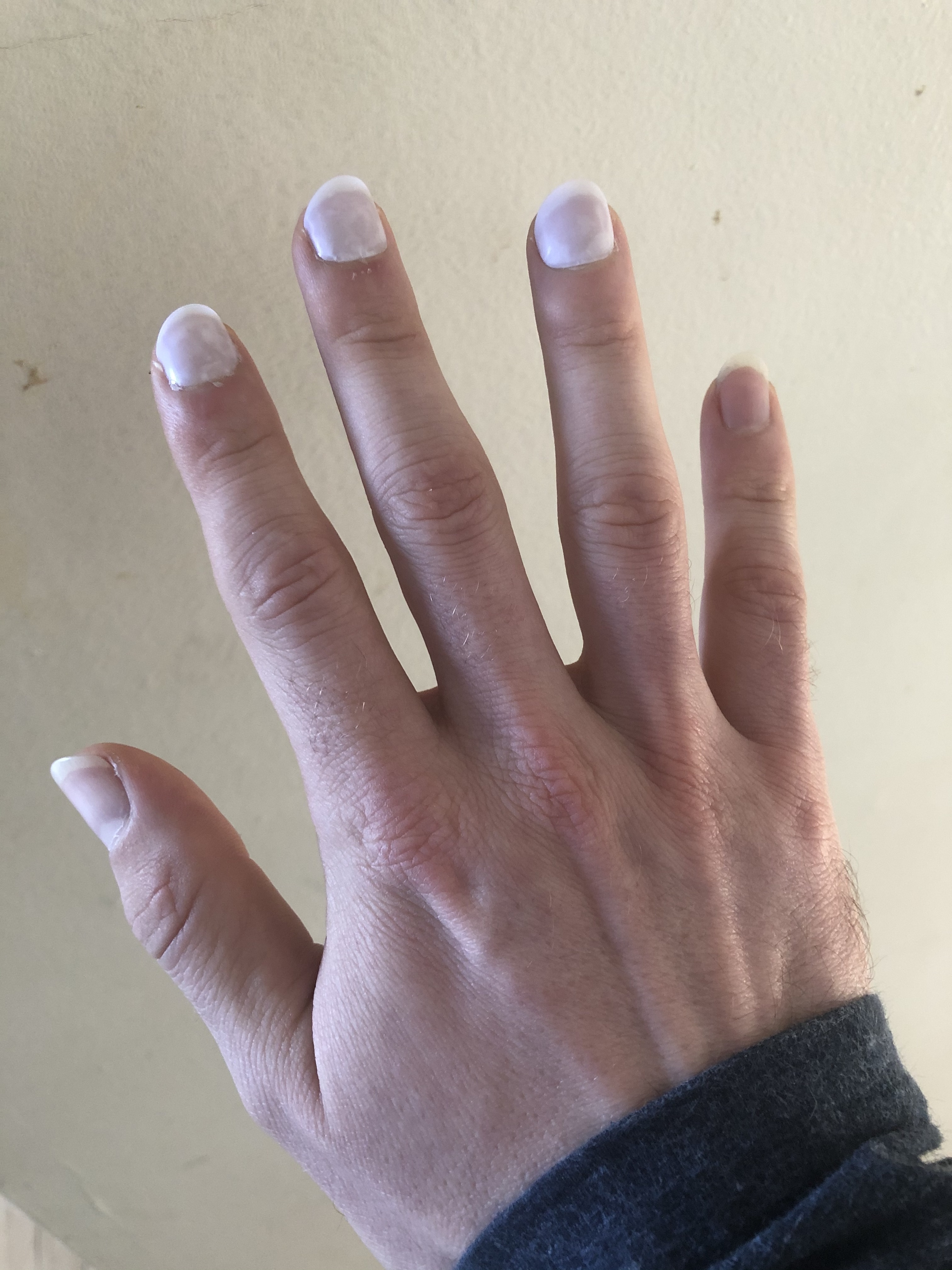
Advice to Younger Players
What single most important piece of advice about practicing would you offer to younger players?
SLOW DOWN. Time and time again, I realize that my student’s perception of practicing something “slowly” is maybe only 5-10 bpm’s slower than performance tempo. I have learned to actually enjoy playing music at 25% of the performance speed, and it not only helps solve technical problems but also speeds up the learning and memorization process. I also advise against the temptation to play through an entire piece over and over again, trusting that eventually things will fix themselves. I usually learn things a passage at a time, or a small section at a time. I might spend 45 minutes on 4 measures, but those measures are then technically and musically secure, and I don’t need to worry about them any more, David Leisner sums up this idea wonderfully in his book Playing With Ease (highly recommended), referring to this practice as working in “bite-size sections”, and the importance of varying “analytical” versus “soul” work. “Soul” work refers to understanding the “big picture”, and largely occurs at the very beginning (finding that initial inspiration, hearing how your own musical personality could work with the piece), and the very final stages of learning a piece (polishing for performance). Most of the time in between should be hyper focused and analytical, otherwise you are likely wasting time and probably building bad habits that will be hard to fix later on.
“SLOW DOWN.”
– Steven Cowan
What repertoire do you consider essential for young/conservatory students to assimilate? Why?
While I encourage students to find their own niche and repertoire specialization eventually, I do agree that the bachelor’s level should try to check all of the boxes. Contrapuntal music demands a different skillset in the hands, and just sounds so good on guitar when it’s done well. I don’t play a lot of 19thcentury music, but this is perhaps the best music for students to learn how to integrate phrasing, rubato, and how to decide on dynamic shape based on the melodic or harmonic content of the piece. 20th century repertoire from the Segovia or Bream era makes up the bulk of our guitar “masterpieces”, so there’s no escaping it!
Recordings that every young guitarist should be familiar with and why?
To follow up on the previous answer, I think it’s important for guitarists familiar with the history of our instrument, particularly the last 100 years. The big names are big names for a reason, and so listening to some of the greats in chronological order (Segovia, Bream, Williams, Parkening, Ghiglia, Barrueco, Russell, etc.) will introduce you to the important pieces of the times as well as the evolution in playing style. This can continue with the young concert artists and competition winners of today, of which there are too many great albums for me to even mention. It’s all easily accessible online these days – go out and find it!
___________________________
Support Steven Cowan’s work:
Latest solo album on Apple Music (also available on other streaming platforms):
https://music.apple.com/us/album/björnsson-morricone-others-works-for-guitar/1466291274
Latest duo album:
https://www.analekta.com/en/albums/contemporary-music-guitar-duo/
Artist Profile and Interview: Julia Trintschuk
If you have not heard the brilliant young guitarist Julia Trintschuk you are in for a treat. Hailing from Germany, Julia has been on stages all over the world and performed Joaquin Rodrigo’s Concierto de Aranjuez at age 16 to launch her career. With a seemingly endless amount of technical skill, a refined and elegant sound, and a natural musicality, her interpretations transcend the guitar. Fortunately for Six String Journal readers, Julia recently took some time to share some of her experience, tips, and advice! Enjoy.

Personal
When did you start playing and why? Or, what drew you to the guitar initially?
Actually I first started playing piano at the age of four. As my mother was teaching me the piano and my father was always playing the guitar, soon I also became interested in playing guitar and started having the first guitar lessons with my father at the age of four as well. From then on I continued playing both instruments.
What repertoire do you enjoy playing the most?
In general I’m only choosing pieces I enjoy playing and working on, to join my repertoire. But it also depends a lot on my mood and the piece itself. What I like a lot is to have a big contrast and variety between the different pieces, for example a couple of technically very demanding and virtuosic pieces, some musically difficult pieces and a few very beautiful and simple piece.
What guitar or guitars do you perform on? Strings?
Mostly I’m playing on my guitars by Fernando Mazza with a cedar top and my Antonio Marin with spruce and satin wood. It’s a very colorful guitar and makes it easy to create a tender way of making music and not focusing on the technical issues too much. Apart from that I like to use my other guitars with a cedar top for a more powerful repertoire or chamber music.
As for the strings I am very happy to be a part of the Savarez family since 2017 and I’m using the Savarez 510 MJP Cantiga Creation Premium High Tension.
Which guitarists/musicians have had the most influence on you?
My teachers Prof. Mario Sicca, Martin Wiedmann, Mateus de la Fonte and Prof. Joaquin Clerch definitely had the biggest influence on me. Musically speaking also my long-term piano teacher So-Ryong Chuoa had an immense influence on me and led me to two of my biggest inspirations Evgeny Kissin and Sergej Rachmaninov.
Are you planning to record a cd? What are some up and coming projects you are excited about?
There are a few projects ahead, that I’m excited about, but they’re still in the process of making, so I’ll be happy to share them soon, when things will get more precise.
Technique and Performance
How much do you practice? And, do you structure your practice in any particular way?
Usually I practice around six hours a day, sometimes more, sometimes a bit less. But structure in the practice is one of the most important things in my opinion. I think it is very important to have an overview on all projects that are going on and to set deadlines.
Another benefit that structuring your practice brings, is that with the time you get to know how much time and which precise steps it requires for you to refresh old pieces, which can be a big help, when you have several programs you have to prepare. All in all I believe a structured practice plan is the key to a good time management that saves you from wasting both time and energy in the wrong way.
What has to be included in every practice plan in my opinion is a warm-up/technique session, a few sessions for working on new repertoire, and one session where you refresh old pieces or keep current pieces “alive”. The most important is to separate these blocks by breaks, in order to keep focused and be able to go through all of these parts daily.
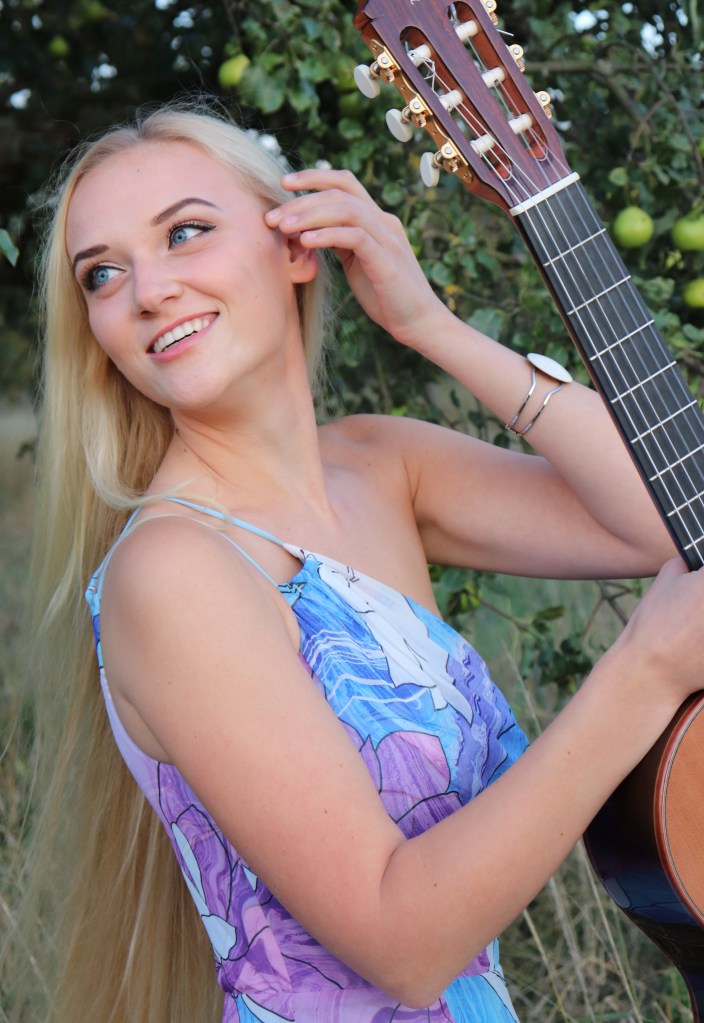
Are there aspects of guitar that you struggle with or that you find you are still working on?
As we change our perspectives and points of view constantly during the process of development, I don’t believe it is ever possible to achieve the state of an absolutely controlled, constant total perfection and be “completely done” with the work with the instrument. It’s just that the focus on what you want to improve, lies on different aspects in the different phases on top of the basic feeling of a general comfort with the guitar.
Do you deliberately memorize music or have a technique that helps assimilate music into memory?
In most cases the memorization comes while I’m practicing the piece, but sometimes if I want to support or accelerate the process I like using the technique of mental practice (without guitar) and also to analyse the harmonic progressions.
Have you published any editions or do you plan to publish your own editions in the future?
I have done a few arrangements, that I didn’t publish yet, but I’m definitely planning to do that in the near future.
Do you have a favorite drill you use to warm up?
My favourite parts from my usual warm-up routine are minor and major scales through all tonalities and the 12 etudes by Heitor Villa-Lobos. Apart from that I also like warming up on the piano by practicing different technical exercises, before practicing the guitar.
Do you do anything to your nails or shape them in a particular way?
Apart from the usual filing and smoothing with a common nail file and nail papers I don’t use any specific products.
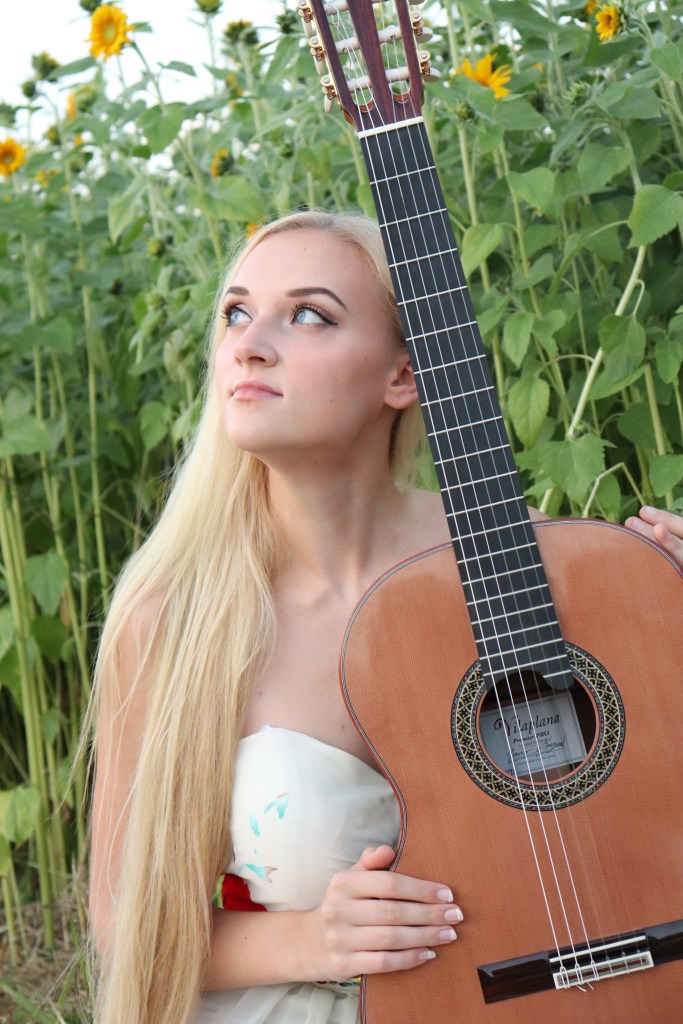
Advice to Younger Players
What single most important piece of advice about practicing would you offer to younger players?
Practice slow with a lot of patience and love what you’re doing.
What repertoire do you consider essential for young/conservatory students to assimilate? Why?
Apart from the classical “competition repertoire” that every ambitious guitarist goes through, in my eyes the 12 Etudes by Villa-Lobos and the 20 Etudes simples by Leo Brouwer are essential, because it doesn’t only include all technical difficulties that one learns to master during the process of learning these pieces, but these pieces also give a perfect fundament for deepening the understanding of harmony and finding a personal way of applying music to at first glance seemingly technical studies.
Recordings that every young guitarist should be familiar with and why?
I believe especially in a young age it is very important to get familiar with the recordings of the most important, diverse legends of the guitar such as Paco de Lucia, Andres Segovia, Julian Bream, Manuel Barrueco, going through all generations and “schools”, to be able to understand and develop your own taste and style. In order to evolve a personal style of musicality in my opinion it is even more important to listen to meaningful other instrument, chamber music and orchestral recordings.
Tangent
What is the last book that you read? Favorite author/s?
The last book I read is “The Prophet” by Khalil Gibran. Among my favorite authors are Paulo Coelho, Jane Austen and Bernhard Schlink.
Do you try to stay healthy? Exercise? Follow a particular diet? Have a favorite pre-concert food?
I like to stay active in my free time and try to do different activities and I do some home exercises and yoga. I also like cooking a lot, but I don’t follow a specific diet. Everything just has to be fresh and tasty 🙂
Do you meditate in any way?
To me focus and concentration, mental health and spiritual development are very important, so I try to keep it up in different personal ways, also including meditation.
What is your favorite way to spend time when not practicing?
I love searching for inspiration, when I’m not practicing. That doesn’t only include all the activities that are connected to being a musician like listening to music, reading, playing other instruments, but also visiting theaters, art galleries, dancing, spending time with family and friends, meeting interesting people, cooking, trying different activities, visiting saunas and spas, enjoying the beauty of nature – so shortly: discovering all the beauties of life itself. 🙂
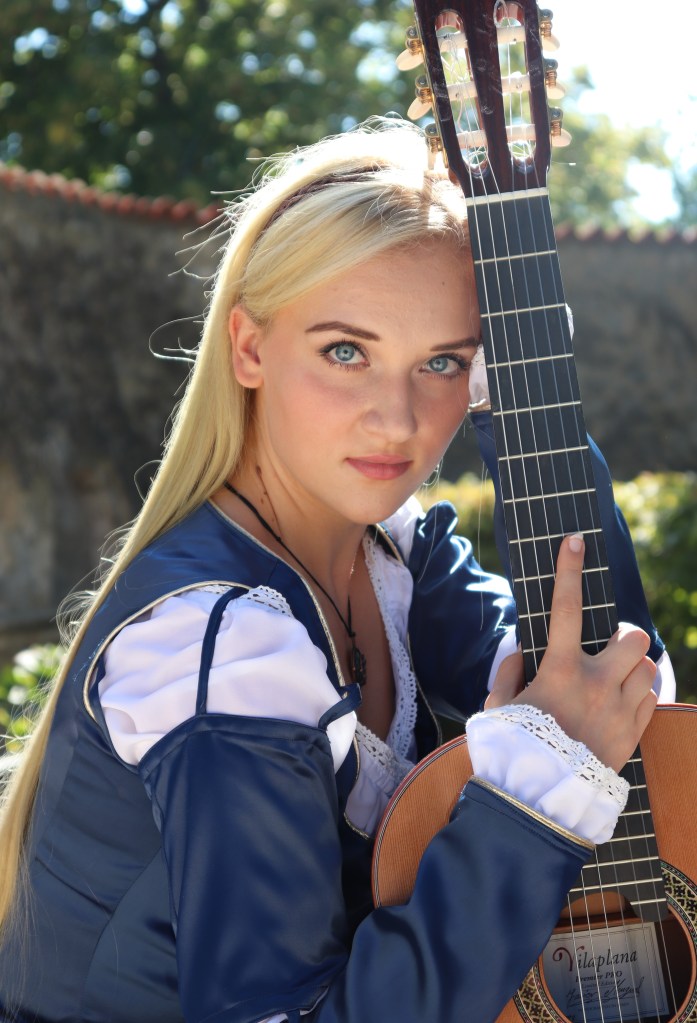
__
Artist Spotlight and Interview with Julia Lange
Young German crossover guitar star, Julia Lange appears equally at ease playing classical, steel string, and funk. Versatile is perhaps an understatement. As a D’Addario sponsored artist, Julia has been seen on stages across Europe and China playing her wonderful arrangements, with her funk band, with other great musicians, and performing standard classical repertoire. With an enviable command of the guitar and guitar styles, her virtuosic technique comes across in a wonderfully relaxed and musical manner. Fortunately, Julia had some time to share a bit about her guitar journey with Six String Journal. Enjoy!
When did you start playing and why? Or, what drew you to the guitar initially?
I started playing guitar when I was 8 years old. My older brother used to take guitar lessons and he wanted to quit at that time so it was my chance to get his guitar. He gave me the very first lessons but in return I had to give him all my pocket money… soon we started fighting and I went to a proper guitar teacher.
What repertoire do you enjoy playing the most?
I enjoy playing all kinds of music from classical guitar to Fingerstyle and electric guitar with my band mates.
What guitar or guitars do you perform on? Strings?
I perform with my “Jakob Lebisch” classical guitar and my “Battiston” Steelstring guitar. I use D’Addario strings.
Which guitarists/musicians have had the most influence on you? There were many guitarists that influenced me but the ones who also changed my life in a certain aspect were for example Tatyana Ryzhkova, because her wonderful YouTube channel inspired me to start my own YouTube channel that opened so many doors for me. Tommy Emmanuel and Andy McKee were the first artists that inspired me to do my own thing, to make my own arrangements and start a new chapter. Later on I started composing and arranging for classical guitar as well. Last year was again a changing point when I discovered the Funk band Vulfpeck and I totally fell in love with Cory Wong’s awesome rhythm guitar playing and that made me pick up my electric guitar and start a Funk band with friends.
If you have recordings, which recording/s are you most proud of? If not, are you planning to record a cd? Right now I just have my YouTube videos but I hope to publish an album soon. But I’m right now working on my Funk band’s first EP that we’ll publish probably at the end of the year.
What are some up and coming projects (recordings, concerts) you are excited about? Since the beginning of Covid there are many cancelled concerts and hardly any new concert requests, I hope to be on stage soon again and perform the concerts I was supposed to have in China this year or my prize winners concert for the “Lichtenberger Musikpreis” at Schloss Lichtenberg. The online living-room concert I made for the German TV channel ZDF & ARTE was one of the highlights of the lockdown time.
Technique and Performance
How much do you practice? And, do you structure your practice in any particular way? I almost always start with some warming up exercises before I play but I can’t say exactly how much I “practice” per day because it makes a big difference for me whether I arrange something new, improvise or really practice and prepare for concerts but I spend pretty much all my free time with my guitar.
Are there aspects of guitar that you struggle with or that you find you are still working on?
I think I still find myself working and will always find myself working on all kinds of things. No matter how good you are, no matter how much you work there is no end. It could simply always be better. Which might sound terrifying but it’s awesome, because it never gets boring. Where I’d like to put more focus on the next years is improvising and composing music. And of course on electric guitar I still feel like a beginner, it’s a long way to go.
Do you deliberately memorize music or have a technique that helps assimilate music into memory?
I enjoy using the technique of “mental practice” to memorize things better and I think that analysing the piece is a big help for a solid memory.
Do you have a favorite drill you use to warm up? I have some warming-up exercises that I really love and I’m sharing little tutorials about them on my Patreon page, feel free to check it out: https://www.patreon.com/julialange
Do you have any pre-concert rituals?
Not really.
Do you do anything to your nails or shape them in a particular way?
As my nails have to survive not only classical guitar nylon strings but also steel strings, I use a gel layer that I harden with a UV-light lamp. Just the way the ladies are doing it in those fancy nail studios but I make the layer rather thin.
Advice to Younger Players
What single most important piece of advice about practicing would you offer to younger players?Set yourself specific goals. For example take part in competitions, get concerts, make videos and work towards a specific aim that motivates you! I found for myself that this is the only way to really get yourself out of your comfort-zone and improve.
What repertoire do you consider essential for young/conservatory students to assimilate? Why? I think the most important repertoire is the repertoire and the pieces that you really want to play from the bottom of your heart and not the repertoire that someone else tells you to play. What I’d love to see more in conservatories are teachers encouraging their students to write their own tunes based on what they’ve learned for example from the classical pieces they play. Exploring the endless possibilities of making music and the freedom we have in expressing ourselves.
Tangent
What is the last book that you read? Favorite author/s?
“Getting things done” by David Allen is a book that I really highly recommend to all kinds of independently working artists and people.
Do you try to stay healthy? Exercise? Follow a particular diet? Have a favorite pre-concert food?
I do some sports, sometimes, could be more if I’m honest but I think I eat quite healthy although my cake consumption is pretty high. I don’t follow any diet and my favorite pre-concert food is bananas.
What is your favorite way to spend time when not practicing?
I love being outside in nature and spending time with family and friends.
_____
More about Julia:
YouTube: https://www.youtube.com/channel/UCg2K_7mrkygu0xmCQ6v9Chg
Instagram: https://www.instagram.com/julia.lange.guitar/
Patreon: https://www.patreon.com/julialange
Lessonface: https://www.lessonface.com/instructor/julia-lange
Artist Spotlight and Interview: Michael Kolk
Hailing from Canada, guitarist Michael Kolk has been praised by Liona Boyd as, “…one of the most brilliant and expressive guitarists I have heard in my time.” Known for his musicianship, his technique, and his interpretive abilities, Kolk is one of Canada’s top guitarists. Despite the quiet performance scene at this time, he has just launched a wonderful CD of 20th Century Guitar Sonatas. Fortunately, he had a bit of time to share some of his insights with Six String Journal. Hope this inspires you all.
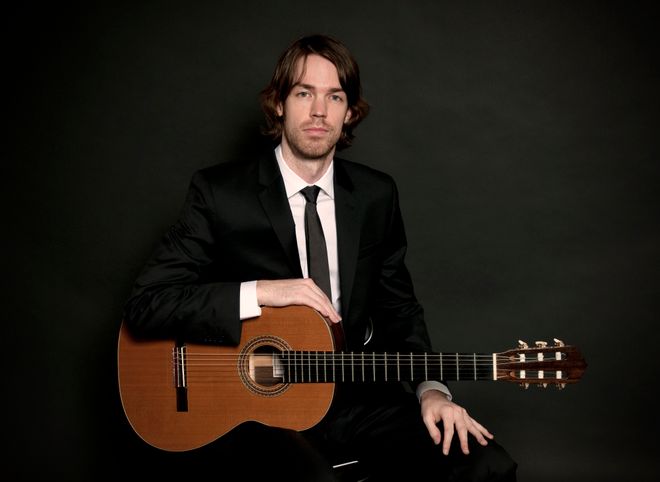
Personal
What guitar or guitars do you perform on? strings? I perform mostly on a Martin Blackwell spruce/cedar double top from 2015. It’s a very rich, full, warm sounding guitar, but with ample tonal variety as well. I have a really nice Roberto de Miranda traditional cedar as well that was my main guitar since 2007, and I still play it, though not much in concert anymore – the Blackwell projects better. I used Savarez New Cristal/Cantiga for years, but I’ve recently switched to Alliance trebles. I had tried them and couldn’t ever get used to them, but recently I warmed up to them and figured out how to make them work for the sounds I want.
Which guitarists have had the most influence on you? Julian Bream was the first big influence – he was the guitarist that really excited me when I was a teenager (aside from Jimi Hendrix, but that’s a different story…) There are so many great guitarists these days, but I guess in terms of influence I’d say Fabio Zanon, Roland Dyens, and then two guitarists whom I’m very close with, my former teacher Jeffrey McFadden, and my long time duo partner Drew Henderson. I’ve learned a lot by playing with both of them and just sharing ideas about guitar,
What are some up and coming projects (recordings, concerts) you are excited about? Things are pretty quiet right now – as I’m writing we’re in the middle of the Covid pandemic, so concerts are not happening, and I haven’t pursued online performances. Last year, however, I was really busy with projects. I was playing concerts with the HK Guitar Duo, as well as a couple with a violinist named Laurence Kayaleh, and working on a solo recording of 20th Century Guitar Sonatas which I chose to edit and release myself. Laurence and I also recorded an album of violin/viola and guitar Sonatas by Ferdinand Rebay which was recently released on Naxos. So I’ve been taking a bit of a break from playing classical music and have been exploring creating music by recording rock songs and studying composition. Whether this work ends up seeing the light of day or not, I felt it was important to try writing my own music to develop my creativity, and gain a deeper understanding of music, from a composer’s perspective. I remember Roland Dyens saying in a masterclass that we should all be both performers and composers, and it makes a lot of sense to me.
Technique and Performance
How much do you practice? And, do you structure your practice in any particular way?
These days I practice strategically, mostly. I don’t have as much time as when I was younger, to just sit down and play without a real structure. I usually practice in 30 minute segments. I put on a timer and make sure to get up and walk around a bit when the time is up. If I’m on a roll I’ll sit down right away and do another session, or I might take a break and do something else and come back to the guitar when I’m fresh again. The total amount of time depends on what’s going on in my life. If there are other projects that need attention I may not play much for a couple weeks. When I have performances or recordings coming up I aim for 3 solid hours of practice in a day. If I’m focussed during that whole time, I can’t really handle much more practice. I may play guitar beyond that, but it would be more messing around or playing for fun.
Are there aspects of guitar that you struggle with or that you find you are still working on?
Tremolo has always been a struggle for me. It takes a lot of work to get it flowing and it never feels totally secure. I think some players have a very natural tremolo, and others don’t even though they may be good players. I have to train right hand speed in general much more than left hand, but I guess that’s fairly common.
Have you published any editions or do you plan to publish your own editions in the future?
I’ve recently self published an arrangement of Beethoven’s 7th symphony, the 2nd movement Allegretto, for guitar duo. Earlier, Drew Henderson and I had our arrangement of Ravel’s Tombeau de Couperin (selections) published by D’Oz.
Do you have any pre-concert rituals?
If possible it’s great to have a walk during the day, and a nap. If I can fit those things in I feel pretty good come concert time. Then 15 minutes before the concert I have a banana, and at intermission I have an apple. To keep the blood sugar up.
Advice to Younger Players
What single most important piece of advice about practicing would you offer to younger players?
Well, I think everyone has to find what works best for themselves when it comes to improving at guitar. And it’s not always about drilling technique and being as efficient as possible. Make time to play for enjoyment to keep your enthusiasm. But when you’re feeling sharp and motivated, practice with deep focus and attention to detail. And try not to build up tension – form good habits of posture and relaxation and they will translate to performances. I guess that’s more than one piece of advice…
What repertoire do you consider essential for young/conservatory students to assimilate?
I think there’s a standard repertoire that classical guitarists should at least be familiar with, even if they don’t learn all of it to a performance level. Bach, of course, the 19th century guitar composers like Sor, Giuliani, Aguado etc…, the Spanish repertoire like Tarrega, Albeniz, Granados, Rodrigo, and the Segovia repertoire like Ponce, Castelnuovo-Tedesco, Torroba, Turina, etc…, then music from the Americas like Villa-Lobos, Brouwer, Barrios, Lauro. There’s a lot, and it takes time to get through. At the same time, I think students should also play lesser known music and try to expand their repertoire beyond the classics.
Artist Profile and Interview: Mateusz Kowalski
When the words “spectacular” and “breathtaking” pop out in a review by Classical Guitar Magazine, there is something special afoot. It so happened that the review was for Mateusz Kowalski’s brilliant performance among brilliant performers during the EuroStrings Competition in London last year. He took first place. Mateusz’s playing evokes such a wide range of emotions – joy, melancholy, nostalgia, excitement, and I am ashamed to admit it as a fellow guitarist, envy is in there, too. His interpretations are alive with imagination and intuition and it is clear that he possesses absolute control of his fingers. His videos are binge-worthy if you have the time.
Mateusz recently sat down to share some insight with Six String Journal readers about his philosophies and his journey so far. Enjoy.
Personal
When did you start playing and why? Or, what drew you to the guitar initially?
I started to play when I was six. My older brother and cousin played the guitar, mainly rock and metal music. I wanted to be like them and play the guitar too. In addition, my mother worked in the office of the local philharmonic, so I had a constant contact with musicians, I could hear them practicing, rehearsing and performing.
What repertoire do you enjoy playing the most?
I enjoy playing pieces which leave some space for the performer to show their personality through them. For me, it doesn’t matter which period does the piece come from. I find all the musical languages (styles of different epochs) to be interesting, effective and beautiful.
It’s also important for me to make every piece I play personal, I always try to put my feelings, my experiences into the interpretation. My aim is to never play “empty” notes.
What guitar or guitars do you perform on? Strings?
I have two guitars I use on regular basis: 2015 Karl-Heinz Roemmich Model Exquisite Spruce Top and 2017 Sakurai Masaki Model Mastro RF Spruce Top. I string them with Savarez Cantiga Premium Basses, 3rd & 2nd Alliance and 1st New Crystal. All Normal Tension.
Which guitarists/musicians have had the most influence on you?
Among musicians who have influenced me the most, I find my two guitar teachers to be the most important. Dariusz Schmidt taught me for 12 years and then Ryszard Bałauszko taught me for 5 years after that. They showed my the musical path I should follow and provided me with the principles which I stick to to this day when interpreting music.
When it comes to famous guitarists – I grew up listening to Assad Brothers, Julian Bream, Andres Segovia, and John Williams. Among non-guitarists the most important ones who have influenced me are: Arthur Rubinstein, Maxim Vengerov, Frans Brüggen, Giovanni Antonini (as a conductor), and Il Giardino Armonico (Ensemble).
If you have recordings, which recording/s are you most proud of? If not, are you planning to record a cd?
So far, I have recorded one CD album “Mateusz Kowalski Classical Guitarist” and, of course, this is the one I’m most proud of. It was premiered in September 2019. The album comprises a collection of pieces important to me, reimagined and interpreted anew. The track list features compositions by Bach, Giuliani, Tárrega, Barrios, Piazzolla, Ponce, Assad and Schubert. The album published by CD Accord is available via Naxos Classics Online store, on Spotify, Amazon Music and iTunes.
What are some up and coming projects (recordings, concerts) you are excited about?
I have just finished my online social media project (FB + IG) “A week with Guitar Salon International”. I premiered eight videos recorded with them on seven different guitars. I described every guitar from the player’s perspective and wrote a couple of thoughts about the pieces themselves.
The next big project will be recording my second CD for the National Institute of Fryderyk Chopin. It’ll happen this year, in September. The CD will contain Chopin’s Mazurkas op. 6 and 7 transcribed by J. N. Bobrowicz (first ever transcription of these mazurkas) and the most important compositions (a couple of world premiere recordings) of the greatest Polish guitar virtuosos of the nineteenth century – Jan Nepomucen Bobrowicz, Felix Horetzky, Stanisław Szczepanowski, and Marek Sokołowski. Extremely hard but also extremely beautiful pieces.
Technique and Performance
How much do you practice? And, do you structure your practice in any particular way?
The time is spend on practicing is dependent on many different factors, but it is usually somewhere between two to six hours. Let’s say it’s four hours on average. I try to spend at least an hour to 90 minutes working on my technique every day, which is about playing various exercises, drills, or speeding up fast parts of pieces I play – gradually, with metronome. It’s basically trying to exceed my limits, push my technical boundaries every day.
Are there aspects of guitar that you struggle with or that you find you are still working on?
It’s making sure, that at all times, it’s the technique which serves the music and not the opposite. I believe that’s an aspect of the guitar every guitarist should be working on, all their lives.
Do you deliberately memorize music or have a technique that helps assimilate music into memory?
The fastest way for me to memorize a piece of music is to practice it having the sheet music put somewhere else, in the other room, for example. Then you are forced to remember as many bars as possible, otherwise, you’d have to stand up and walk to the place where the scores are at.
Have you published any editions or do you plan to publish your own editions in the future?
I have plans to publish my edition of Franz Schubert’s Musical Moment No. 3. Many guitarists ask me to do that, so I will, very soon.
Do you have a favorite drill you use to warm up?
I love to warm up with arpeggios from Tarrega’s The Complete Technical Studies.
Do you have any pre-concert rituals?
A one light meal only, playing through all my program with scores and a lot of coffee.
Do you do anything to your nails or shape them in a particular way?
I shape them by placing a nail file over my strings, then I imitate how I hit the strings, which always gives me the same, rather round shape, with the length of the nail not exceeding the flesh of my finger (only thumb is exception from that rule).
Advice to Younger Players
What single most important piece of advice about practicing would you offer to younger players?
Structure your practicing. Practice technique separately – with scales, drills, exercises, arpeggios. Sight-read a lot – that’s one of the most useful skills.
Remember that the most important thing is to make your interpretation interesting and valuable for the audience. And when I say audience – I don’t mean guitarists, competition jury members, etc., I mean regular people, who look for sincere feelings in music, who want to experience something beautiful during the concerts. Your job is to make their lives better. Bearing that in mind, you’ll never lose motivation and you’ll always see meaning in what you’re doing.
What repertoire do you consider essential for young/conservatory students to assimilate? Why?
I believe that young/conservatory students should play pieces from all the epochs and they do that in most of the cases. In my opinion they miss one very essential skill – being able to realize a figured bass. It takes some time to be fluent at it, but even spending some time on understanding how it works is very beneficial. It makes you understand harmony better, which is strictly connected to better understanding music in general.
Tangent
What is the last book that you read? Favorite author/s?
Homo Deus, written by Yuval Noah Harari. Favorite author – Bruno Schultz.
Do you try to stay healthy? Exercise? Follow a particular diet? Have a favorite pre-concert food?
I ride a mountain bike and exercise regularly. 😊
Do you meditate in any way?
For me listening to the music is way of meditating, contemplating.
What is your favorite way to spend time when not practicing?
Eating out with my wife – finding new places with delicious food and coffee.
Featured Artist and Interview with Thomas Athanaselos
Hailing from Greece, guitar virtuoso Thomas Athanaselos recently took some time to share his thoughts about his journey with guitar. Equally comfortable playing jazz arrangements, his own evocative compositions, and classical repertoire, Thomas’ playing is musical, fluid, and direct. I hope you enjoy learning a bit more about him here.
When did you start playing and why? Or, what drew you to the guitar initially?
I started playing the guitar at the age of 11. My influence was a teacher in primary school who always accompanied the school choir with his guitar and he really seemed to enjoy it. Next year my parents just signed me up for a Music School. As time went by I realized my passion for the guitar and music generally.
What repertoire do you enjoy playing the most?
I have always loved playing various music styles from different music periods. The last years my repertoire includes music from the 18th-19th Century but also contemporary compositions of mine and other composers.
What guitar or guitars do you perform on? Strings?
Over the last years I’ve performed on a guitar built by Vassilis Sigletos (GR) and I use Knobloch Actives (Carbon) high tension strings.
Which guitarists/musicians have had the most influence on you?
Throughout the years I have also played the electric and acoustic guitar, so my first influences were guitarists like Steve Vai, George Benson, Robben Ford and Al Di Meola. At the age of 16 when I focused on the classical guitar, guitarists and musicians from 18th to 21th century like J. S. Bach, Augustin Barrios Mangore, Fernardo Sor, Isaac Albeniz, Joaquin Rodrigo and the great Paco de Lucia had a big impact on me. Of course, I can’t dismiss Astor Piazzolla’s music.
If you have recordings, which recording/s are you most proud of?
I recorded my first album ‘In Memoriam’ in 2018, which received very good reviews so I could say for sure that this is the recording I am proud of. Recordings are always hard to satisfy you 100% so I hope the next one will be even better.
What are some up and coming projects (recordings, concerts) you are excited about?
Right now due to the situation Covid-19 caused, we are facing a different routine and lifestyle which is something new for everyone. That makes it difficult to arrange concerts so I am focusing on composing and studying new repertoire.
How much do you practice? And, do you structure your practice in any particular way?
I am always careful to keep my mind and my fingers in a good condition. When I have arranged concerts I practice every day 2-3 hours.
Do you deliberately memorize music or have a technique that helps assimilate music into memory?
I don’t have any specific way to memorize music. Sometimes the harmony and the melodic line of the piece makes it easier to memorize it. In any case I try to be careful and concentrated when I first study a piece. Many repeats and slow playing also helps me to find the details and deeply understand the score.
Have you published any editions or do you plan to publish your own editions in the future?
Yes, I have published four compositions of mine through Bergmann Editions.
You can find the scores here: Bergmann Editions.
Do you have any pre-concert rituals?
For sure, I always try to take some time to relax on my own and not to get in touch with many people. This helps me to stay calm and concentrated on my program. I like to play some scale exercises or some slow tempo parts of the pieces. To me these are the essentials. The ideal preparing for me is maximum 45 minutes before the concert.
What single most important piece of advice about practicing would you offer to younger players?
I think young players should first start training their brains. They should try to create their own personality in music generally and this will lead them to new paths of playing.
Do you try to stay healthy? Exercise? Follow a particular diet? Have a favorite pre-concert food?
As our ancestors used to say ‘a healthy mind in a healthy body’. So I always try to exercise because it also affects positively my mood and my playing and I have healthy lifestyle in general. I don’t have a specific pre-concert food. A good meal for sure and maybe a bar of chocolate just before the concert!
What is your favorite way to spend time when not practicing?
Running, cycling, watching movies, listening to music, and spending some time walking around with my dog!!

Artist Spotlight and Interview: Katarzyna Smolarek
The brilliant Polish concert guitarist, Katarzyna Smolarek is becoming known for both her breathtaking virtuosity and her magnificent interpretations. In addition to studying at the Mozarteum in Austria and concertizing throughout Europe, Katarzyna has been awarded over 20 international competition prizes over a very short period of time. The silver lining to sheltering in place in Europe is that she was able to find time to sit down and share her experience, philosophies, and wise advise with Six String Journal readers. Enjoy!
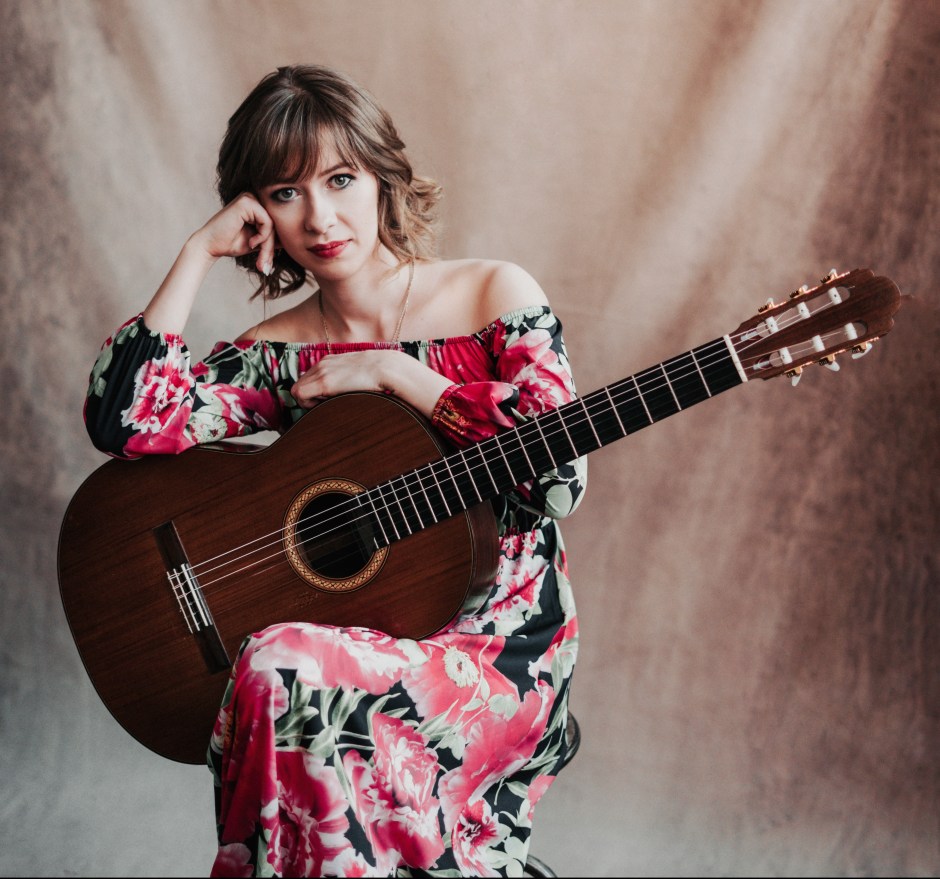
Personal
When did you start playing and why? Or, what drew you to the guitar initially?
I started playing the guitar when I was 8 years old. My parents just signed me up for a music school and I think at the time no one was expecting that I would become a professional musician in the future. With time, I developed a love for playing music and I decided to dedicate my life to it.
What repertoire do you enjoy playing the most?
I enjoy playing all kinds of repertoire from baroque to contemporary music. I think every style has its own proper charm, and I always seek to discover the beauty in each new piece that I learn.
What guitar or guitars do you perform on? strings?
At the moment I perform on a guitar built by Jacek Łozak from 2010. My favourite strings are Savarez Alliance Premium medium tension. Since last year I’m proud to be a part of the Savarez artists family.
Which guitarists have had the most influence on you?
Definitely all of my teachers. Lidia Przyłęcka, Ryszard Bałauszko and Marco Tamayo – they have had a huge influence on my progress, for which I will always be grateful. I consider all of them amazing musicians, dedicated teachers and wonderful people. I was extremely lucky to have them along the way.
What recordings are you most proud of?
I actually haven’t done a lot of recordings in my life (but I’m working on it!). I’m certainly most proud of my recent videos made in Siccas Guitars. They are my most professionally done recordings so far.
What are some up and coming projects (recordings, concerts) you are excited about?
Unfortunately, because of the epidemic of coronavirus a lot of my events have been cancelled. If everything is back to normal soon, I will be able to go to Portugal in June to perform a concert with an orchestra as a part of the International Guitar Festival in Amarante. I am sure I will enjoy it a lot after having such a long break from traveling.
Technique and Performance
How much do you practice? And, do you structure your practice in any particular way?
The duration of my practice varies depending on many factors. I usually practice around four hours per day, but this amount increases before concerts or competitions (or now, because of the quarantine). On the other hand I practice less when I spend time with my family or when traveling. I’m also no stranger to taking days off to relax and reset. I don’t think I structure my routine in some special way.
Usually after I have finished practicing in the evening, I make a plan for the next day so that my practice sessions are balanced and I don’t neglect anything. When I have a whole day for myself I like to break it out into two sessions: morning and afternoon, 2-3 hours each, with a break for lunch and some other activity.
Are there aspects of guitar that you struggle with or that you find you are still working on?
I think there is always room for progress, so in that sense I can say I’m working on every aspect of the guitar performance. I don’t imagine that I will ever have a feeling that there is nothing else to work on and I think it’s a good thing. The constant pursuit of artistic excellence is what brings innovation and life to art.
Do you deliberately memorize music or have a technique that helps assimilate music into memory?
It depends on the piece and the situation. I usually try to learn a piece by memory as soon as possible, so that I can entirely focus on the music. Sometimes the music demands deliberate memorization, and other times the memorization comes naturally after just a few days of playing it. Nevertheless, every now and then I would revise the score, because with time some details might slip away. I also make sure that it’s not only my fingers that remember the piece, but also my brain, in other words that I remember the notes and not only the movements. In order to do that, I play it extremely slowly focusing on every note, or I go through the piece in my mind without touching the guitar at all.
Do you have a favorite drill you use to warm up?
I like to play through a couple of slur and scale exercises before I start practicing pieces. However, I’m not a fan of spending a lot of time warming-up, as for me the ultimate goal is to be ready to perform without having to go through a series of technique exercises. Sometimes we find ourselves in situations when we do not have the possibility to warm up before a concert, and I believe the quality of our performance should not be compromised in those situations.
Do you have any pre-concert rituals?
Not at all. Obviously, it’s important to have a good rest and a good meal, but I wouldn’t call it a ritual. Again, I feel like it’s dangerous to have specific pre-concert routines. In situations when we are not able to perform the routines, we might then lose our confidence on stage as a result.
Advice to Younger Players
What single most important piece of advice about practicing would you offer to younger players?
Solve the problems instead of getting discouraged! I get the impression that a lot of young players don’t really know how to practice. They think that repetition is key and when a passage still doesn’t work after having played it 100 times they start thinking things like, “this piece is too difficult”, “I’m not good enough”, or “I need months/years to play it well”. There is nothing worse than having this sort of approach. Practicing should be all about constructive problem-solving. If something doesn’t work we should be able to exactly tell why and the more precise our answer, the better. We should be extremely conscious of our movements and of our choices. This way we can make progress way faster than by mindlessly repeating.
What repertoire do you consider essential for young/conservatory students to assimilate?
I wouldn’t say that there are any specific pieces that one really must play during his education, although I think that it is essential for a student to be familiar with the concepts of all the historical styles. The more repertoire we already know, the more tools we have for our next interpretations. I would also say that it is important to play the standard guitar repertoire; such as Villa-Lobos’ studies, suites by Bach, sonatas by Ponce, pieces by Barrios, Tárrega, Rodrigo, Turina and so on and so on. Nowadays we tend to look for unknown pieces, we make our own transcriptions and we commission new music. I find it wonderful, however as students we need to familiarize ourselves with traditional repertoire first. This will properly facilitate our lives as performers and teachers.
Recordings that every young guitarist should be familiar with and why?
I think all recordings, no matter good or bad, have their value. Exactly what we listen to is not so important; the crucial part is that we are able to develop an informed opinion and discern what is of high quality and what’s not. What I find extremely useful is listening to a lot of recordings of the same piece and focusing on the differences between them. This helps me understand many possible ways of thinking about the same piece of music.
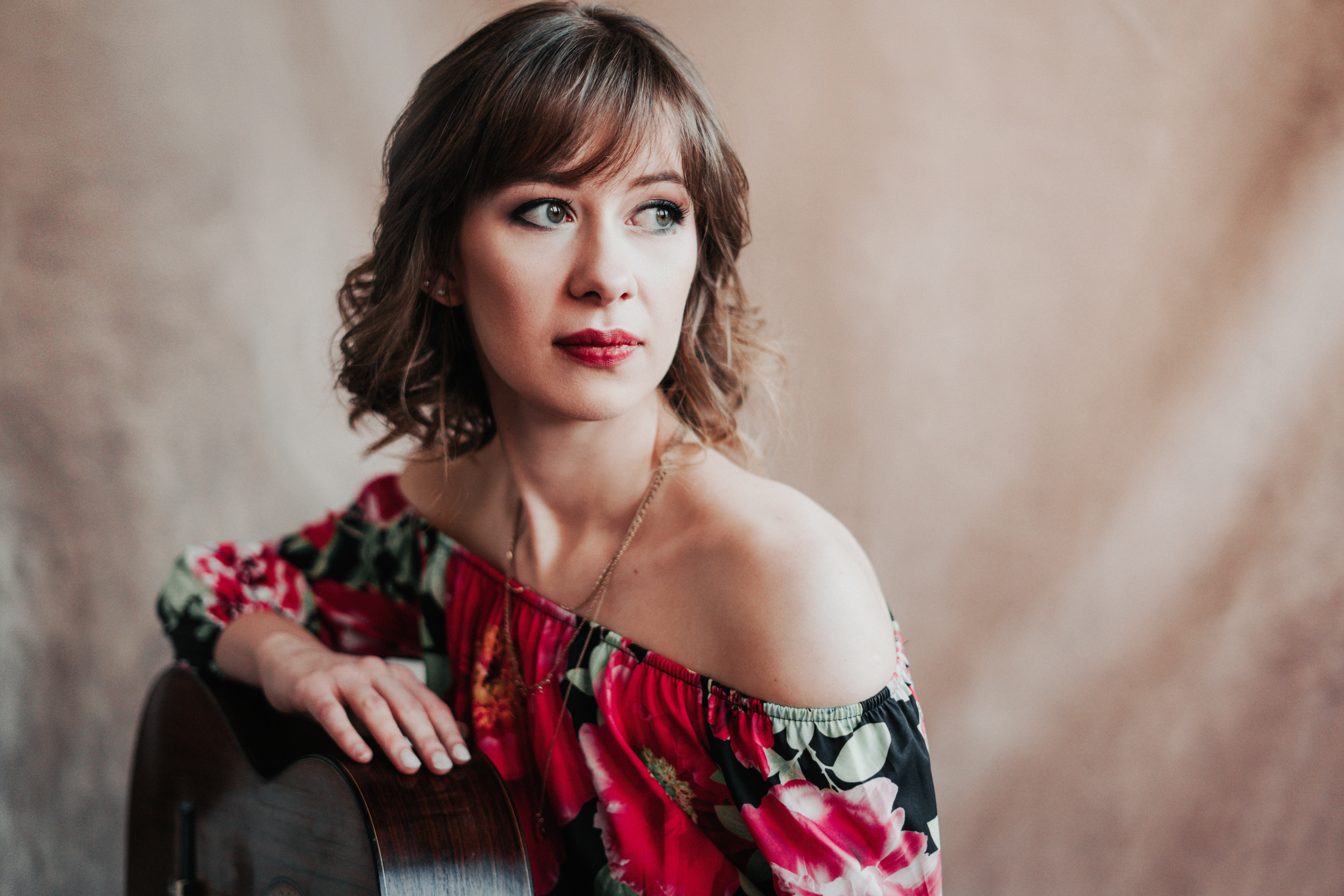
Tangent
What is the last book that you read? Favorite author/s?
The last one would be Fahrenheit 451. I love Márquez, Llosa and Murakami for their out-of-this world storytelling.
What is your favorite way to spend time when not practicing?
I really like learning new languages. Currently I’m working on my Portuguese. Apart from that I enjoy cooking, reading, dancing salsa and just recently I got terribly hooked on the series “Breaking Bad”.
Artist Profile and Interview: An Tran
An Tran

It is always wonderful to stumble upon a great young artist who seems to be doing everything right. An Tran has been praised for his incredible technique and magical playing enough to have won prizes in many international guitar and music competitions throughout the world. An has recently given recitals for the Bangkok Guitar Society, Austin Classical Guitar, Toronto International Guitar Series. This season 2019-20 will include An’s solo concert at the prestigious Segovia Classical Guitar Series in Chicago, USA in May 2020.
An is also a champion of Vietnamese music and has performed pieces written for him by Vietnamese composers on the international stage. He recently premiered the work, Ru Con (Lullaby), written for An by composer/guitarist Nguyễn Thế An in Toronto in March 2019. And his debut CD of an all-Vietnamese repertoire is to be released in early 2020. Stay tuned!
Meanwhile, An took some time from his busy schedule to share some of his experience and journey with Six String Journal. Enjoy!
Personal
SSJ: When did you start playing and why? Or, what drew you to the guitar initially?
AT: I was really lucky to have my parents that helped me find my passion. When I was a kid, I was not good at school…so I think my parents saw that and let me try a lot of different things (from drawing to piano to playing tennis!). Our house was always filled with music, breakfast, lunch and dinner. I went to sleep listening to music. Until one day, my cousin started to play the guitar. I thought to myself, at 8 years old, “I need to try that out!”. It was one of the greatest decisions in my life.
What repertoire do you enjoy playing the most?
It’s hard to say because I enjoy playing all kinds of music, but I definitely love to play Vietnamese music. The more I grow as an artist, the more I feel the connection to my home country, Vietnam. Now I always include Vietnamese music in my concert program. They can be either arrangements of Vietnamese traditional folk songs, or original compositions from Vietnamese composers. I get to share a little bit of who I am with the audience, everywhere I go.
What guitar or guitars do you perform on? Strings?
I perform on Stephen Connor guitars. I currently have 2 of his guitars and they are extremely amazing instruments. Steve made my guitars with so much care and love that it is a joy to play every single time. His uplifting spirit is also contagious and inspiring as well.
For strings, I use D’Addario Carbon, Normal Tension. They sound beautiful on my Connors, and they hold intonation really well. Since I tour with only one guitar most of the time, due to my program with Vietnamese music, I have to change to alternate tuning between pieces. They have never failed.
Which guitarists/musicians have had the most influence on you?
I would say all of my teachers made a huge impact on me as a musician and as a human being. I have too many teachers to list them, but if they are reading this, they know who they are 🙂 I can also say that I learned so much from my guitarist friends as well. When I did a few competitions, I learned so much just by listening to my fellow competitors.
My classical guitar heroes are John Williams and David Russell. When I was a kid, I listened to their recordings on repeat almost every day. I also love Nguyen Le, a Vietnamese/French jazz guitarist. He has an amazing ability of blending traditional Vietnamese music with contemporary Jazz. I highly recommend checking him out, if you haven’t heard him yet.
What recording/s are you most proud of?
I’m very proud of my upcoming album “Stay, My Beloved”, which features all Vietnamese guitar music. This recording is like my life journey. Some pieces I learned when I was a kid, and some I learned not too long ago. It was a lot of work, but the music on this album stay very close to my heart, that’s why the whole process was so satisfying. It will be released on April 18, 2020.
What are some up and coming projects (recordings, concerts) you are excited about?
I’m excited about the upcoming concerts in the US as well as my European tour in August. This will be my first time playing in Europe, so I am very excited. On top of that, I will premiere 2 works that were dedicated to me by Spanish composer Juan Erena in Cádiz, Spain. I’m also working with a few Vietnamese composers to write more works for the ever-evolving guitar repertoire. Even though my debut album is not even out yet, I’m already thinking about recording the next Vietnamese guitar album.
Technique and Performance
How much do you practice? And, do you structure your practice in any particular way?
I always aim to practice for about 4 to 6 hours a day. For me, it is important to practice every day well. I normally divide my practice to 2-3 different shorter sessions. I always try to prioritize practicing first, before doing anything else during the day.
Also, there are apps that could help with your practice schedule. I use this app called “ATracker” on my iPhone. I use its timer to keep track of every piece that I’m working on. This way, I can make sure that I don’t spend too much (or too little) time on 1 piece. By the end of the week, it would give me a graph of how much I practiced each piece. That gives me an idea of what to work on for the following week. I also normally take 1 day off of guitar. I find it helpful to get back to my practice freshly the day after.
Are there aspects of guitar that you struggle with or that you find you are still working on?
I’m constantly working to improve my listening and musicality skills. For me, playing something musically well is very important and I try to improve on that. I also don’t have the perfect technique, so I do struggle with really hard passages sometimes. However, it is easier to improve on the technical side nowadays because there are so many good resources online and good teachers out there. For me, the metronome is crucial for learning new music and master the hard passages. I also use Tonebase, an online resource for guitarists, whenever I find myself struggling with something (either musically or technically). Nothing will replace a good teacher, but there’s always some good info online to support what you’re learning.
By the way, I am NOT “sponsored” by any apps/websites mentioned above, those are just apps that I personally use.
Do you have a favorite drill you use to warm up?
Yes! Villa-Lobos’ Etude No. 1 is always a go-to for me as a warmup before a concert. I also use some of Scott Tennant’s exercises from his Pumping Nylon book. So helpful!
Do you have any pre-concert rituals?
I eat a banana before I play. I find it helpful to get some energy before a concert. I also do some meditation and make sure that I feel grateful for every single opportunity. For people to take their time out of their schedules to come see me perform, that is absolutely incredible! Definitely something to be grateful for!!
Advice to Younger Players
What single most important piece of advice about practicing would you offer to younger players?
One of the most important skills that I learned (and still trying to do) is to keep my focus at 100% while practicing. When I was younger, I practiced like a machine. Mindlessly ran my pieces as many times as possible. All I’m doing now is trying to fix all the problems that came from that!! It can create huge problems and bad habits to fix later. Thankfully, I’ve had amazing teachers who patiently sat with me to tell me what I’ve been doing wrong.
What repertoire do you consider essential for young/conservatory students to assimilate? Why?
I think the most essential skill for a young musician is to cover all periods of classical music. To be able to teach and find your own “voice” in your playing, it’s important to go through all the essential “classical” guitar repertoire. I also think etudes are super important as well. For me, personally, I loved (and still play) the Giuliani, Villa-Lobos and Brouwer Etudes.
Tangent
What is the last movie that you watched?
Parasite, that was crazy!
Do you try to stay healthy? Exercise? Follow a particular diet? Have a favorite pre-concert food?
Yes absolutely. I’ve been doing yoga lately and it really helps. I’ve had lower back pain in the past, so now I try to do yoga more regularly. Nothing fancy, just iPhone apps and Youtube videos. Also, my chiropractor told me that it is important to get up more often to stretch, and to not sit and practice for hours straight (which was my bad habit). I might have to give him commission for this piece of advice!!!
What is your favorite way to spend time when not practicing?
I love to cook. I think cooking is so similar to playing music. Other hobbies are watching movies with my wife, playing FIFA or board games with my family and friends, playing with my puppy Luna. My dad is a former photojournalist, so he taught me a lot about photography. I am now addicted to photography and I enjoy taking pictures of my travels.
Support An by pre-ordering his new CD: Stay, My Beloved
Gohar Vardanyan plays Bach
Armenian guitar virtuosa, Gohar Vardanyan, just released a wonderful video playing the Prelude from Johann Sebastian Bach’s Lute Suite Nº3, BWV995. From the rich sound she extracts from her guitar to the precision of her playing, Gohar proves that in addition to playing Spanish music with great passion and elegance, her Bach is crafted on the same level.
Hopefully, she will put up videos of the remaining movements but in the meantime, enjoy. And, if you would like to support her recording project, visit her indiegogo page: Grand Solos.
Also, check out an interview with Gohar here: Artist Profile and Interview – Gohar Vardanyan..

